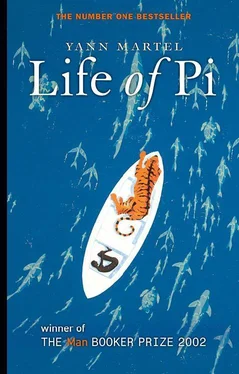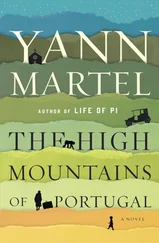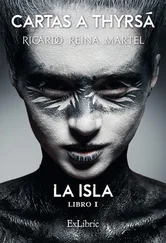“Absurd, macabre, unreliable and sad, deeply sensual in its evoking of smells and sights, the whole trip and the narrator’s insanely curious voice suggests Joseph Conrad and Salman Rushdie hallucinating together over the meaning of The Old Man and the Sea and Gulliver’s Travels.” Financial Times
“ Life of Pi is a great adventure story, the sort that comes along rarely and enters a select canon at once. This would be enough to justify its existence, but it is also rich in metaphysics, beautifully written, moving and funny.” Scotland on Sunday
“This is compelling storytelling, and Martel is always ready to reel in the reader with a well-turned phrase or tasty aside.” Independent
“Here is a writer with a talent as fabulous as the tale that he – and his Pi – have to tell.” Spectator
“An engrossing and beautifully written meditation on God, man and beast. This is a rare gem: a book that you want to immediately re-read.” The List
“Martel has large amounts of intellectual fun with this outrageous fable … It dramatises and articulates the possibilities of storytelling, which for this writer is a kind of extremist high-wire act.” Observer
“One encounters page after page of images and observations riveting in their precision and insight … A story to make you believe in the soul-sustaining power of fiction and its human creators, and in the original power of storytellers like Martel.” Los Angeles Times Book Review
“[This] enormously loveable novel is suffused with wonder.”
Guardian
“Yann Martel is a vivid and entrancing storyteller.”
Sunday Telegraph
“Martel is dazzling.” Independent on Sunday
“A fabulous romp through an imagination by turns ecstatic, cunning, despairing and resilient, this novel is an impressive achievement … Martel displays the clever voice and tremendous storytelling skills of an emerging master.” Publishers Weekly
“Impressive enough to make you, as the old man said, believe in God … Martel has hit on a marvellous notion and revels in elaborating it.” Scotsman
“ Life of Pi is a real adventure: brutal, tender, expressive, dramatic and disarmingly funny … It’s difficult to stop reading when the pages run out.” San Francisco Chronicle
“Martel’s witty and wise novel, with its echo of William Golding’s Pincher Martin , has a teasing plausibility about it that taps into our desire for extraordinary stories that just might be true.” Metro
“ Life of Pi could well be the book of the year.” What’s On In London
“An impassioned defence of zoos, a death-defying trans-Pacific sea adventure à la Kon-Tiki , and a hilarious shaggy-dog story … This audacious novel manages to be all of these.” New Yorker
“Readers familiar with Margaret Atwood, Mavis Gallant, Alice Munro, Michael Ondaatje and Carol Shields should learn to make room on the map of contemporary Canadian fiction for the formidable Yann Martel.” Chicago Tribune
“[Martel] demonstrates the immense power of the imagination to transform our view with the light twitch of a tiger’s tail.” India Today
YANN MARTEL
life of pi
A NOVEL
Edinburgh • London • New York • Melbourne
à mes parents et à mon frère
This book was born as I was hungry. Let me explain. In the spring of 1996, my second book, a novel, came out in Canada. It didn’t fare well. Reviewers were puzzled, or damned it with faint praise. Then readers ignored it. Despite my best efforts at playing the clown or the trapeze artist, the media circus made no difference. The book did not move. Books lined the shelves of bookstores like kids standing in a row to play baseball or soccer, and mine was the gangly, unathletic kid that no one wanted on their team. It vanished quickly and quietly .
The fiasco did not affect me too much. I had already moved on to another story, a novel set in Portugal in 1939. Only I was feeling restless. And I had a little money .
So I flew to Bombay. This is not so illogical if you realize three things: that a stint in India will beat the restlessness out of any living creature; that a little money can go a long way there; and that a novel set in Portugal in 1939 may have very little to do with Portugal in 1939 .
I had been to India before, in the north, for five months. On that first trip I had come to the subcontinent completely unprepared. Actually, I had a preparation of one word. When I told a friend who knew the country well of my travel plans, he said casually, “ They speak a funny English in India. They like words like bamboozle.” I remembered his words as my plane started its descent towards Delhi, so the word bamboozle was my one preparation for the rich, noisy, functioning madness of India. I used the word on occasion, and truth be told, it served me well. To a clerk at a train station I said, “I didn’t think the fare would be so expensive. You’re not trying to bamboozle me, are you?” He smiled and chanted, “No sir! There is no bamboozlement here. I have quoted you the correct fare .”
This second time to India I knew better what to expect and I knew what I wanted: I would settle in a hill station and write my novel. I had visions of myself sitting at a table on a large veranda, my notes spread out in front of me next to a steaming cup of tea. Green hills heavy with mists would lie at my feet and the shrill cries of monkeys would fill my ears. The weather would be just right, requiring a light sweater mornings and evenings, and something short-sleeved midday. Thus set up, pen in hand, for the sake of greater truth, I would turn Portugal into a fiction. That’s what fiction is about, isn’t it, the selective transforming of reality? The twisting of it to bring out its essence? What need did I have to go to Portugal?
The lady who ran the place would tell me stories about the struggle to boot the British out. We would agree on what I was to have for lunch and supper the next day. After my writing day was over, I would go for walks in the rolling hills of the tea estates .
Unfortunately, the novel sputtered, coughed and died. It happened in Matheran, not far from Bombay, a small hill station with some monkeys but no tea estates. It’s a misery peculiar to would-be writers. Your theme is good, as are your sentences. Your characters are so ruddy with life they practically need birth certificates. The plot you’ve mapped out for them is grand, simple and gripping. You’ve done your research, gathering the facts—historical, social, climatic, culinary—that will give your story its feel of authenticity. The dialogue zips along, crackling with tension. The descriptions burst with colour, contrast and telling detail. Really, your story can only be great. But it all adds up to nothing. In spite of the obvious, shining promise of it, there comes a moment when you realize that the whisper that has been pestering you all along from the back of your mind is speaking the flat, awful truth: it won’t work. An element is missing, that spark that brings to life a real story, regardless of whether the history or the food is right. Your story is emotionally dead, that’s the crux of it. The discovery is something soul-destroying, I tell you. It leaves you with an aching hunger .
Читать дальше













